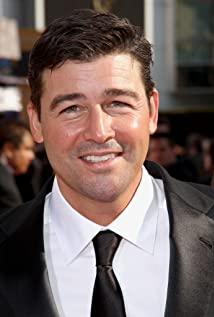Manchester by the Sea is a small town located in Massachusetts, United States, near Boston and facing the North Atlantic Ocean. The descriptions of the drifting fishing boats and the bay scenery in the beginning and end of the film seem to recolor this North American region. The large area of blue is clear and not heavy, and it has a sense of coldness and tranquility far away from the hustle and bustle of the city center. Even the swirling snow in Boston is still white and clean in this film.
Falling in love with this film may be due to the lack of smell of the decadent and depressing commercial smell of the industrial city in its shots, and the colors and scenery indicate purity. In particular, I like the color grading and photography of the film, and even people don't realize that the geographical location of the story takes place in the United States. The use of faded colors and cool tones, shooting techniques and emotional handling seem to be closer to the style of Nordic films.
Similarly, in the exposition of the story, clear colors and leisurely scenery are used to reconcile the heavy colors of life. The film revolves around the sudden death of Lee (Casey Affleck)'s older brother, Joe (Kyle Chandler), and unfolds a memory narrative that intervenes between reality and the past. The first scene is Lee's recollection of the past - he and his nephew Patrick (Lucas Hedges) are fishing on a boat, chatting and laughing, and his brother Joe is driving the fishing boat. The maritime climate is pleasant, the music is melodious, and the scenery is tranquil.
In the film, there appear from time to time the memory fragments of him and Joe when they were alive, but they appear fixedly regardless of the form and time node. Rather than jumping to the screen in a flashback, the fragmented picture of the memory is actually more like the alternation of two timelines, the incomplete and the beautiful, the cold winter and the midsummer at the same time. The disrupted timeline did not disrupt the narrative, neither deliberately nor rigid, but made the movie "live".
"Light" and "light" should also be one of the reasons for liking "Manchester by the Sea". This "lightness" permeating the story makes the presentation of the image free from the depressive quality of the delicate and pretentious. If Joe's illness and death weren't shocking enough, what happened to protagonist Lee is a truly terrifying and desperate disaster in real life. Death and disaster, human estrangement and disintegration, we can all see that the theme of the film is still full of the hardships and pains of life, but the film does not deliberately create a sense of substitution to spread the sadness behind the story.
The film portrays the character of Lee to be dejected, impulsive and irritable, but not depressed and hopeless. Although he is powerless and dejected, none of the scenes in the film can reveal his emotional grief or sorrow. We didn't notice any signs or wounds on Lee's face that he had lost three children overnight and that his wife had been separated from him. The same is true for Patrick. The death of his father is undoubtedly a painful event for a sixteen-year-old boy, but neither Lee nor Patrick's performance is excessive. Patrick's coach told him that he also lost his father at this age. Patrick's light glance at his father's body in the morgue is a frank but not frivolous sense of reality. Including the status of Lee and Patrick in their subsequent lives, they will all be covered with tediousness, and the pain seems to be just an understatement in a flash.
All the movies that show desperate situations or heavy life, even if the theme is about death and disaster, but not every movie has to be deliberately matched with sadness and music to create a thick and inextricable depression and anguish, and it does not need a lot of tears. Expressing despair over reality and lamenting the tragic life. Life by the Sea is equally burdened, perhaps more so than other films about similar themes, but it doesn't present the suffocating sadness in the usual way. This deliberate avoidance is the most distinctive feature of this film.
In addition to Lee and Patrick's attitude towards simplifying the complicated and avoiding the important, the way of getting along with each other and the way of dialogue between the characters in the movie also explores the depth and the shallowness, the lightness and the heaviness of life. When Dr. Bethany said that Joe's diagnosis of heart failure was not a good disease, Joe asked back, "What is a good disease?" - I couldn't help laughing when I saw this. "Manchester by the Sea" uses a lot of hilarious humour to ridicule and irony life, with the intention of releasing depression and offsetting heaviness. Even in the hospital, there are still humorous lines and dialogues in the face of illness and death. It seems that there is still an inch of space for people to breathe in the cramped distance. Lee described to Patrick that his father's body "looks like Just dead, not like falling asleep, but not terrifying." The straightforward sentences and words make people laugh and avoid "extremes". Tragedy is not necessarily the only way to paint the atmosphere with sadness.
Despair is not powerless to resist. There is no disaster that can make people fall into darkness in an instant. The buffer zone in the middle may be the attitude we want to have towards life. Although the story is not warm and healing, it brings another kind of life inspiration.
Optimism and openness are not flippant or ruthless. The scene where Lee's ex-wife Randi (Michelle Williams) sees Lee again at Joe's funeral uses slow motion to pull the two emotionally to their fullest, full and infectious . And at the end Randi saw Lee again and wanted to invite him to lunch, Randi mentioned the word "heartbreak", her tears couldn't let go of his, the conversation was full of meaning. Those two scenes between Lee and Randi touched me a lot.
In fact, "Manchester by the Sea" does not contain resistance and redemption, nor is it an inspirational story or chicken soup for the soul. It still tends to compromise with reality, and it also shows adaptation to the life in front of it, but this is not a compromise. In the end, Lee still did not return to Manchester, but he also did not force Patrick to move to Boston with him, no one was submissive to another, no absolute light, no endless darkness, and C in the extreme options of A and B.
The rhythm of the film is reasonably controlled. The 137-minute film does not play any structural rules, but it is not too long. It has a good theme and a good script. The performance is delicate and the expression is appropriate. The film has almost no flaws and is close to perfection. But the reason for liking "Manchester by the Sea" stems from the atmosphere and overall feel it creates. The story is not pleasant, but it is relaxing, as if it can remove the oppressive feeling of being stuck in real life. We cannot choose what we experience in our lives, but we can decide how to deal with it all.
Some people see brokenness and incompleteness, I see the opposite; some people feel cold and cold, and I blow a warm wind. The color is bright, the texture is cool, and the story is light. The motor of the fishing boat on the bay is still running, and the empty shots of Manchester by the sea at the beginning and end of the film are beautiful, fresh and indifferent but intriguing.
View more about Manchester by the Sea reviews











